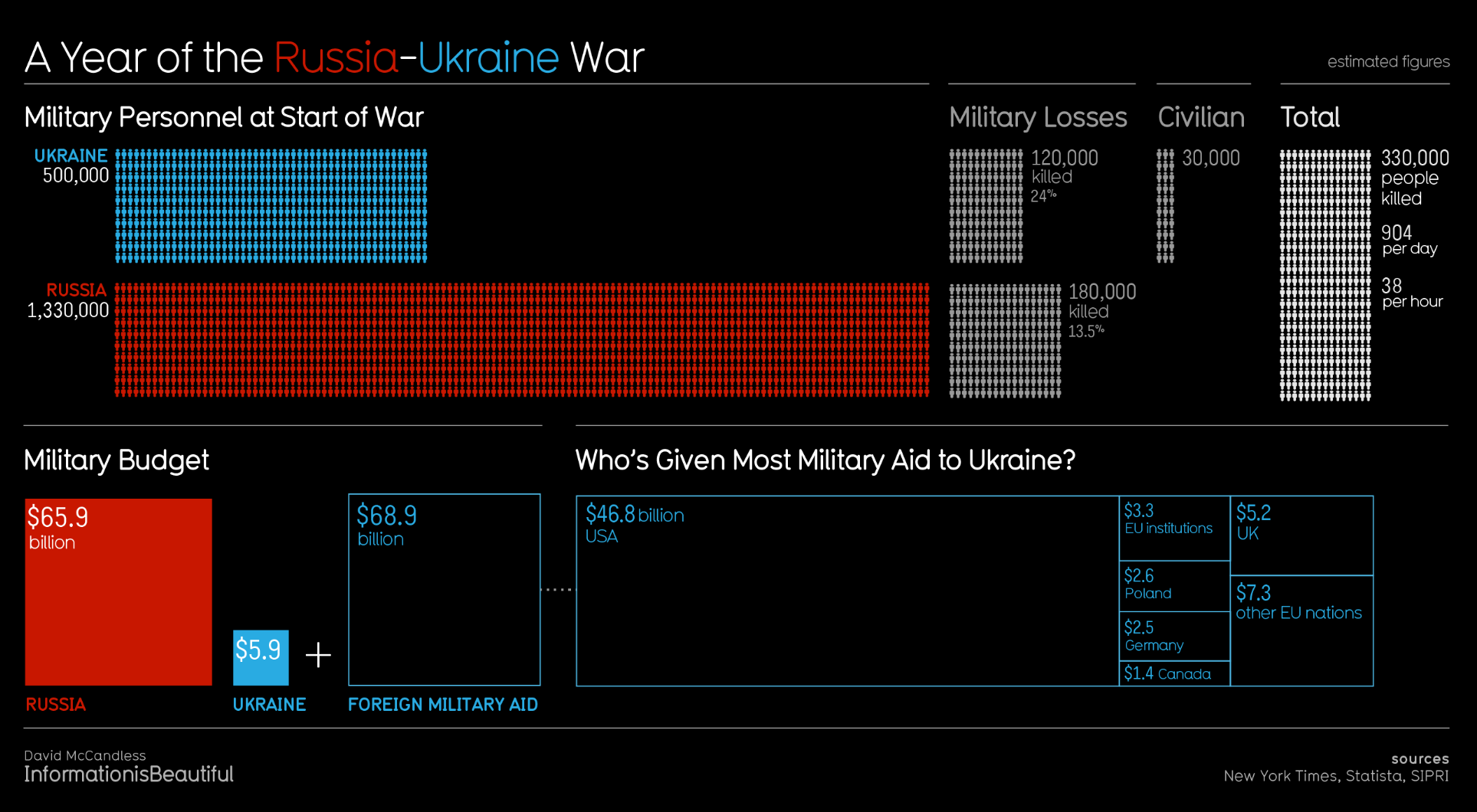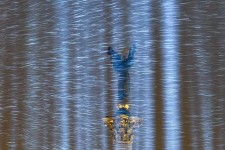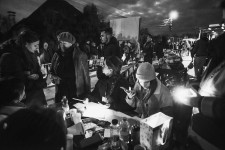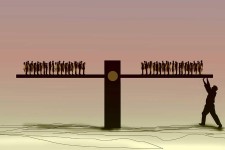„As long as Putin is in power, Alexei will not be free”
German publication Der Spiegel interviewed Yulia Navalnaya, wife of jailed Russian dissident Alexei Navalny, two days after a documentary film about him won an Oscar. In the interview, Yulia Navalnaya talks, among other things, about her husband's health, how he is being treated in prison and how she keeps in touch with him, as well as her hopes for Russia's future.
God's preachers
After the Russian army failed in its attempt to conquer Ukraine in a kind of blitzkrieg, the Kremlin needed a better explanation to justify the invasion, one that would convince the Russians to join the bloody war against their neighbours. So, state media and lawmakers began to portray the war as a religious crusade. Except that in addition to domestic audiences, the propaganda promoting the invasion as a "holy war" also appealed to an external audience, namely the US conservatives. An analysis of this strategy and who are the Kremlin propagandists behind it can be found on the website of the Center for European Policy Analysis (CEPA), a Washington-based think tank.
Ukrainians and the Moldavian economy
The website of the public station Radio Moldova has recently published an analysis on the influence the refugees from Ukraine had on the Moldavian economy. The article is based on statements made by expert Veaceslav Ioniță, former chairman of the Parliamentary Committee on Economy, Budget and Finance, while speaking on the radio talk show Economic Analysis. In his opinion, the impact of refugees from Ukraine has been predominantly positive, supporting in particular the HoReCa sector, trade in goods and the transport branch.
Ice scream
Figure skating has been the pride of Russia for decades, if not centuries. But because of bans on international competitions, young Russian skaters are leaving the country in search of a better future. Some of them have given up their citizenship to compete for other countries, even those on Russia's so-called "unfriendly countries" list. And they face harsh criticism not only from representatives of the State Duma, but, often, even from their new teammates. A Deutsche Welle article.
The defectors return to the battlefield
In a recently published investigation, Mediazona journalists counted 536 criminal cases registered in Russian garrison courts against soldiers since the beginning of the invasion of Ukraine. Most involve offences of desertion, often resulting in sentences allowing the offenders to return to the front. In addition to desertion, more serious offences include refusing to obey orders and striking a commander.
Russia's most ruthless military spy agency has a new chief
For Western intelligence, Yevgeny Serebriakov is a familiar figure, having been involved in some of the worst cyber attacks in history over the past five years. With Russia's invasion of Ukraine, Sandworm, the unit Serebriakov now leads, refocused its efforts on Kiev: from its headquarters in a tower in Khimki, a Moscow suburb, the newly minted Sandworm leader launched data-destroying malware, tried to cause a third blackout - which the Ukrainian government says it prevented - and bombarded Ukrainian and Polish organisations with a fake ransomware campaign known as Prestige. You can read more about the evil figure in Wired's investigation.
Putin met the Russian billionaires again
In his second meeting with Russia's top businessmen since the start of the war, the first being held on the very day of the invasion, 24 February 2022, Putin praised those who "stayed here and didn't leave". Behind closed doors, however, there was talk of a 300 billion ruble "voluntary contribution", which Russian billionaires still hope to see presented as a tax so they can escape charges of war sponsorship. But the big talking point is who came to meet Putin at a time when open association with his regime risks Western sanctions.


















